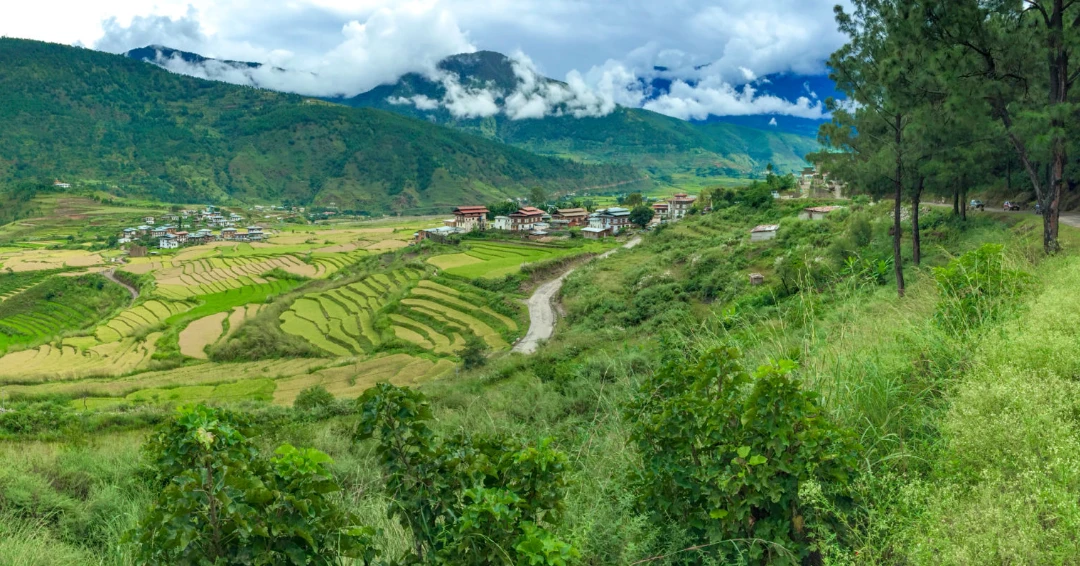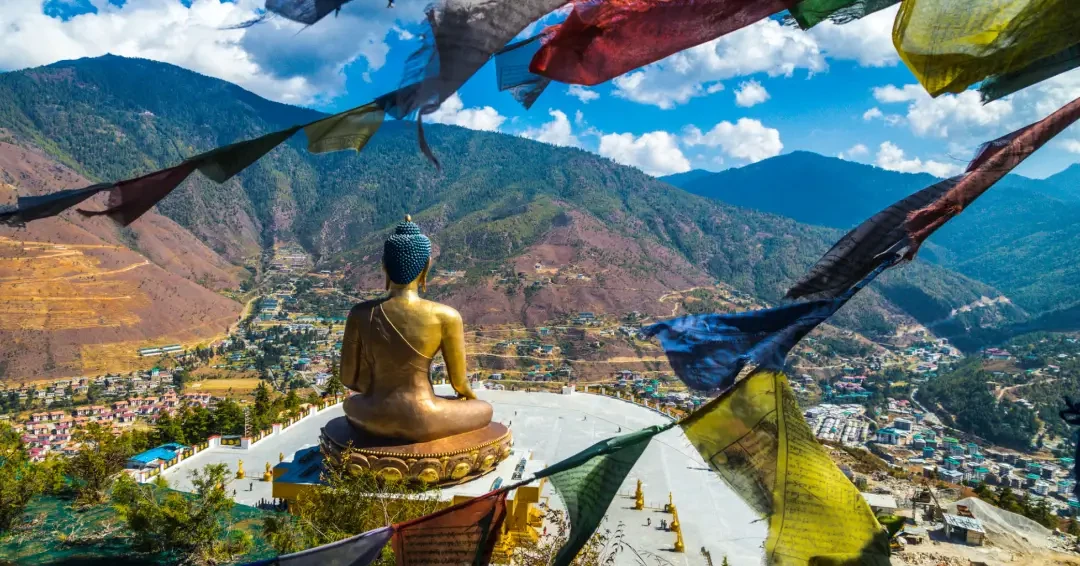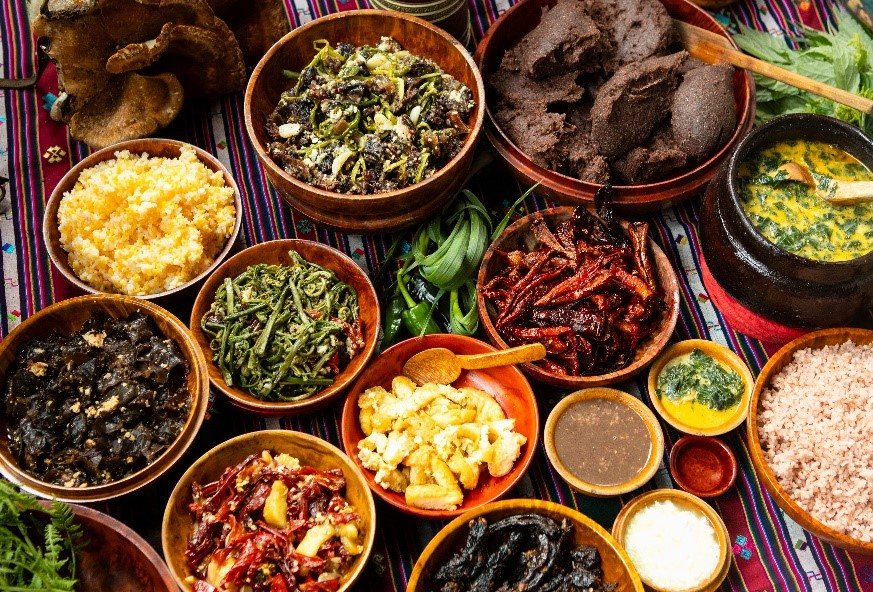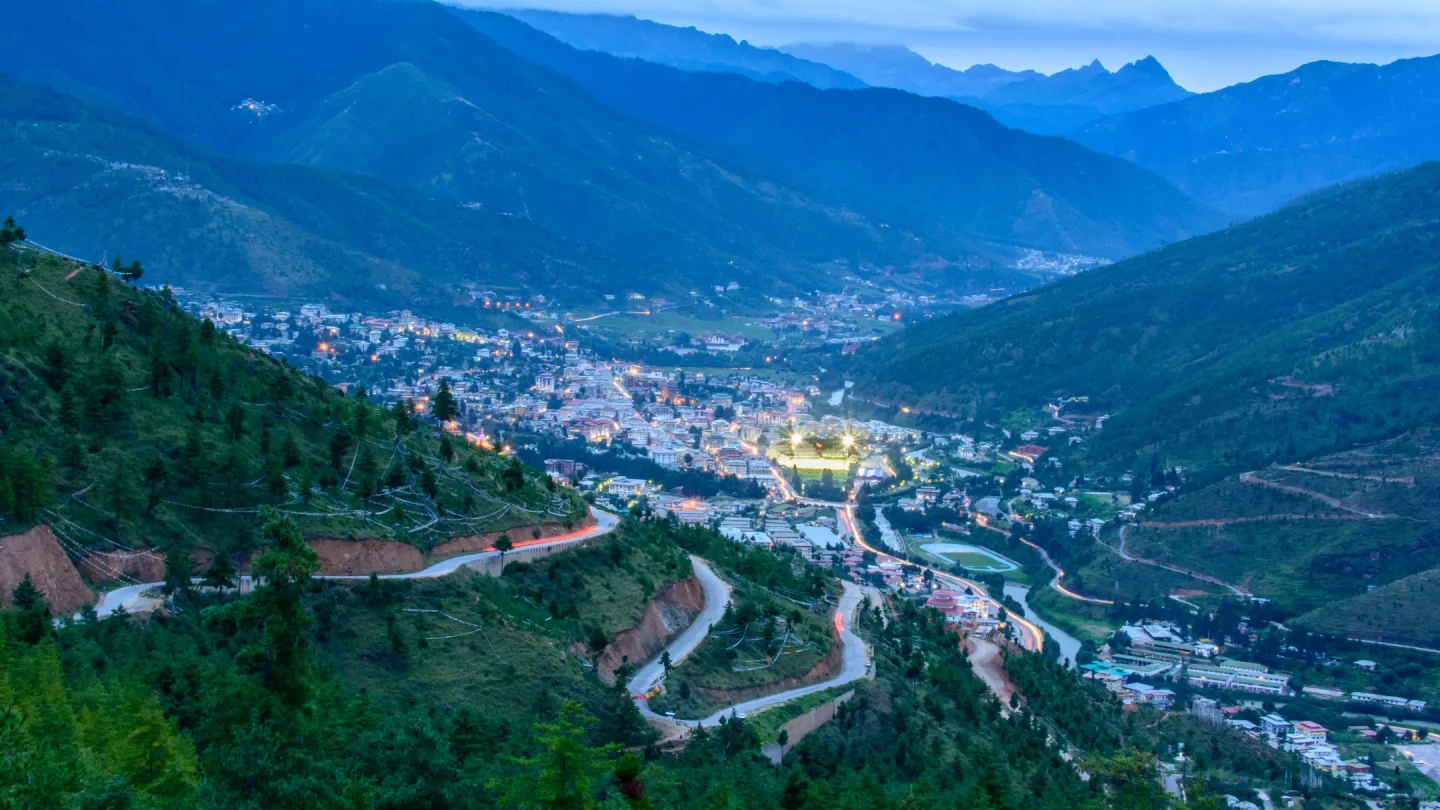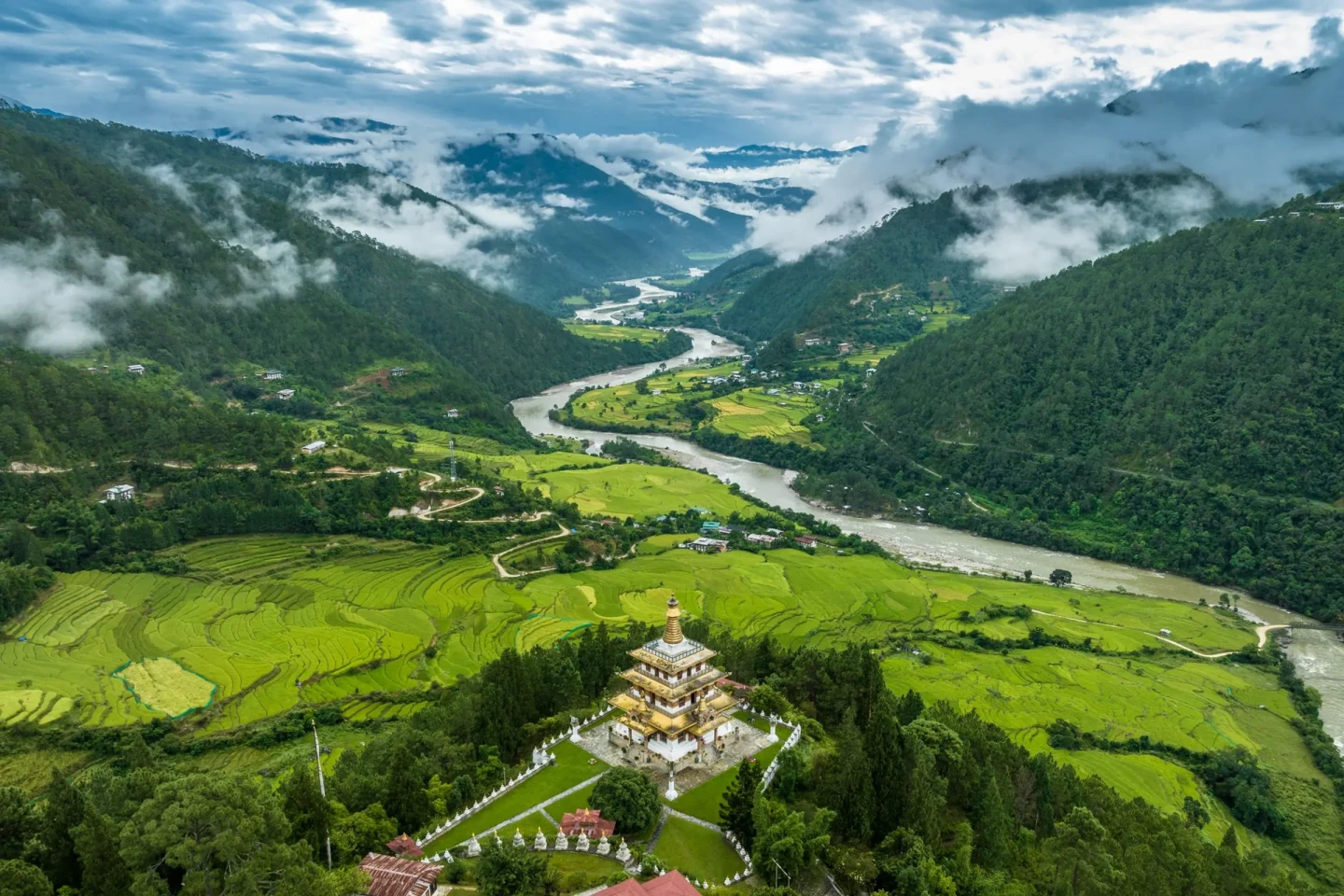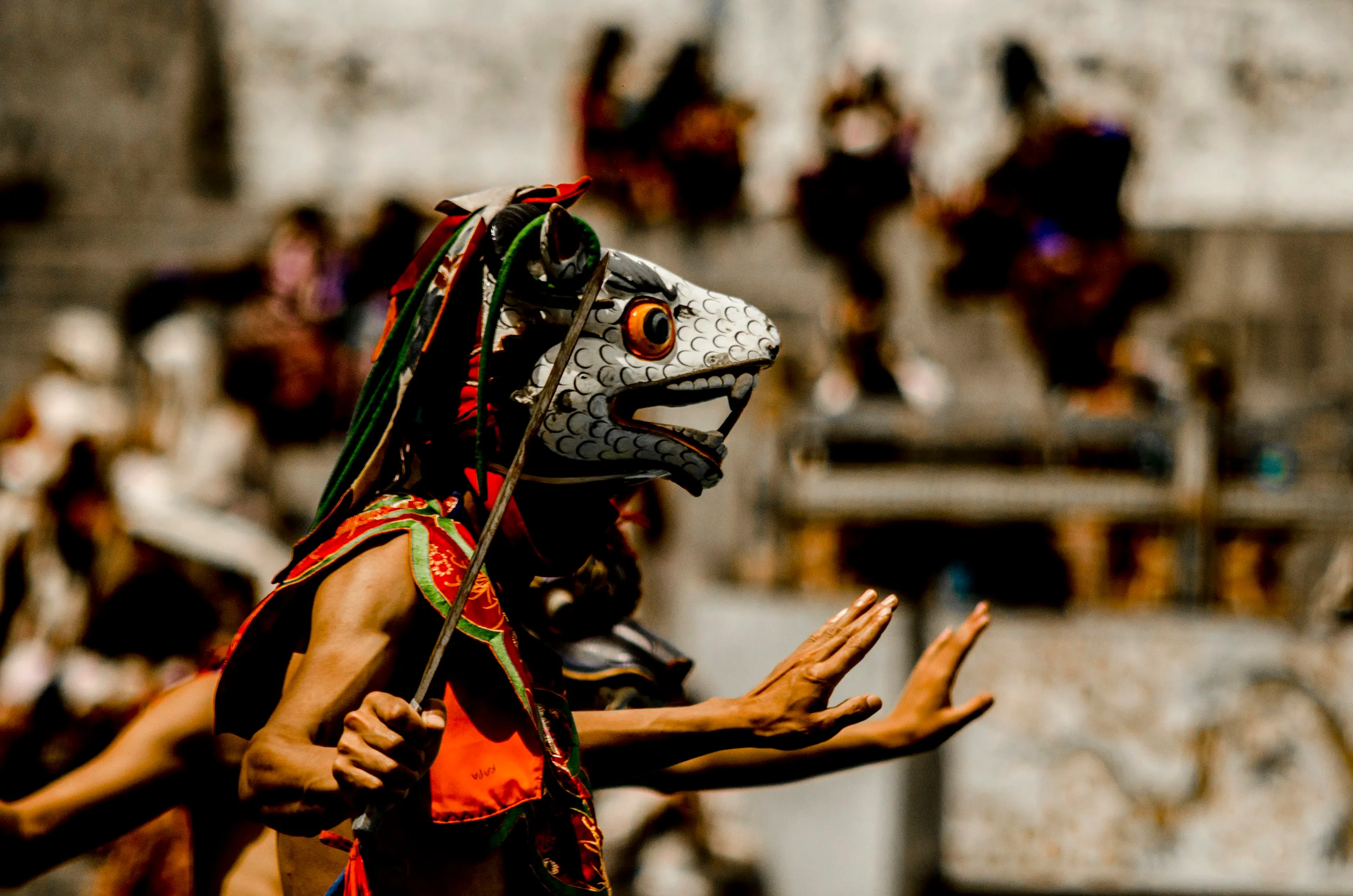Nestled in the eastern Himalayas, Bhutan stands as a beacon of preserved tradition and natural splendor, offering Albanian travelers a profound contrast to the bustling Mediterranean vibes of their homeland. While Albania boasts a rich tapestry of Ottoman history, Adriatic coastlines, and vibrant urban life in cities like Tirana, Bhutan presents a serene, landlocked kingdom where ancient Buddhist monasteries cling to mist-shrouded mountains, and the philosophy of Gross National Happiness guides every aspect of life. The diplomatic relations between Albania and Bhutan are nascent and limited, with no direct embassies exchanged, but both nations share a commitment to environmental preservation—Albania through its national parks and efforts to combat pollution, and Bhutan via its constitutional mandate to maintain at least 60% forest cover. This mutual respect for nature could foster future collaborations, perhaps in sustainable tourism or cultural exchanges. For Albanians accustomed to the diverse influences of European neighbors, Bhutan offers an immersive escape into a world where time moves slower, spirituality permeates daily routines, and modernization is carefully balanced against cultural integrity. Imagine trading Albania's seaside promenades for Bhutan's winding mountain trails, or the echoes of minarets for the chants of monks—this journey promises not just sightseeing, but a transformative experience that highlights the beauty of simplicity and harmony with the environment. As an experienced Bhutanese travel consultant, I assure you that Bhutan is not merely a destination; it is a sanctuary for those seeking authenticity amid a globalized world, making it an ideal choice for Albanian adventurers yearning for cultural depth and untouched landscapes.
Visa and Entry Requirements
Bhutan's tourism is governed by a controlled policy designed to protect its unique culture and environment, mandating that all foreign visitors, including Albanian citizens, must book their trips through licensed Bhutanese tour operators. This high-value, low-volume approach ensures sustainable tourism, limiting the number of visitors to preserve the kingdom's pristine nature. For Albanian tourists, obtaining a visa involves an eVisa process handled entirely by your chosen tour operator, who will apply on your behalf once the tour is booked and the Sustainable Development Fee (SDF) is paid. Required documents typically include a passport valid for at least six months beyond your intended stay, a recent passport-sized photo, proof of onward travel, and details of your itinerary. The visa approval letter is issued by the Tourism Council of Bhutan and must be presented at the point of entry, where the actual visa stamp is affixed upon arrival at Paro International Airport or land borders. Payment for the tour, including the SDF of US$100 per person per night (as of 2025, with exemptions for children under 5 and half for ages 6-12), is intrinsically linked to visa approval; the fee must be transferred in advance to the operator's account, as it funds conservation, education, and healthcare initiatives. This SDF significantly impacts overall pricing, making Bhutan a premium destination, but it guarantees that your visit contributes directly to the nation's well-being. Albanian travelers should note that independent travel is not permitted, and attempting to enter without a pre-arranged tour will result in denial of entry, emphasizing Bhutan's commitment to guided, responsible exploration.
Travel Routes from Albania to Bhutan
Journeying from Albania to Bhutan requires careful planning due to the absence of direct flights, involving transits through major hubs that connect Europe to South Asia. From Tirana International Airport, the most common routes involve flying with airlines like Turkish Airlines to Istanbul, then connecting to Delhi, Bangkok, or Kathmandu, before boarding Druk Air (Bhutan's national carrier) or Bhutan Airlines for the final leg to Paro International Airport. For instance, a typical itinerary might include a flight from Tirana to Istanbul (about 1.5 hours), followed by an 8-hour journey to Delhi, and then a 2-3 hour flight to Paro. Alternatives via Doha with Qatar Airways or Dubai with Emirates offer similar connections, but transit times can extend the total travel duration to 20-30 hours. Paro Airport, one of the world's most challenging due to its high-altitude location surrounded by mountains, operates only during daylight and in good weather, leading to potential delays or cancellations if visibility is poor—expect realistic flexibility in your schedule, as flights are often rescheduled for safety. Booking should be done well in advance through your tour operator, who can coordinate seamless connections and handle any weather-related adjustments. Albanian travelers should anticipate jet lag from the time difference (Bhutan is 5 hours ahead of Albania) and prepare for the dramatic shift from Albania's coastal plains to Bhutan's rugged terrain, making the journey itself an adventurous prelude to the wonders awaiting in the kingdom.
Best Time to Visit and Seasonality
Bhutan's climate is as diverse as its landscapes, divided into four distinct seasons that profoundly influence travel experiences, from blooming valleys in spring to snowy peaks in winter. Spring (March to May) brings mild temperatures ranging from 10-20°C in lower altitudes, with rhododendrons carpeting the hills and clear skies ideal for trekking and sightseeing; this period aligns with festivals like Paro Tshechu, offering Albanian visitors vibrant masked dances and cultural immersion amid low crowds. Summer (June to August) introduces the monsoon, with heavy rains (up to 500mm monthly) causing lush greenery but also landslides and foggy conditions that can disrupt road travel—while fewer tourists mean quieter sites, it's less recommended for Albanians seeking dry weather akin to their Mediterranean summers. Autumn (September to November) is widely regarded as the prime season, featuring crisp air (5-15°C), harvest festivals such as Thimphu Tshechu, and optimal visibility for Himalayan views, balancing moderate crowds with comfortable conditions for activities like hiking. Winter (December to February) offers cold snaps (down to -5°C at higher elevations) but sunny days perfect for birdwatching and low-altitude explorations, though some passes may close due to snow. For Albanian tourists, accustomed to temperate climates, autumn or spring are ideal, avoiding extremes while maximizing festival highlights and fewer visitors, allowing for personalized trip planning that emphasizes nature and spirituality over mass tourism.
Money, Costs, and Payment Methods
Bhutan's currency, the Ngultrum (BTN), is pegged to the Indian Rupee at a 1:1 ratio, facilitating easy exchanges for Albanian travelers who might carry Euros or USD as backups. Currency exchange is available at airports, banks, and authorized hotels, but rates are best in major towns like Thimphu or Paro; ATMs are increasingly common in urban areas, accepting Visa and Mastercard with withdrawal limits around BTN 20,000 per transaction, though reliability can vary in remote regions—advise carrying sufficient cash in USD or BTN for rural excursions. Credit cards are accepted at larger hotels and shops, but smaller vendors prefer cash, and international transaction fees apply. Tour packages typically cover accommodations, meals (three per day), internal transport, guides, and entry fees, keeping daily costs predictable, but extras like alcoholic beverages, souvenirs, tips (US$10-15 per day for guides/drivers), and personal expenses such as laundry or optional activities add up. Albanian visitors should budget an additional US$50-100 daily for these, noting that the SDF is already embedded in tour pricing, ensuring your expenditures support local communities without the need for haggling over basics.
Health, Safety, and Travel Insurance
Health considerations in Bhutan revolve around its high-altitude terrain, where elevations from 2,000 to 5,000 meters pose risks of acute mountain sickness (AMS), characterized by headaches, nausea, and fatigue—Albanian travelers, unaccustomed to such heights, should acclimatize gradually, staying hydrated and avoiding alcohol initially. Recommended vaccinations include hepatitis A and B, typhoid, and rabies, given potential exposure to stray animals; medical facilities are basic outside Thimphu, with Jigme Dorji Wangchuck National Referral Hospital offering reliable care, but evacuation may be necessary for serious issues. Travel insurance is indispensable, covering high-altitude activities, emergency medical evacuation (often by helicopter, costing thousands), and trip cancellations—ensure policies include AMS and adventure sports if trekking. Bhutan is remarkably safe, with low crime rates due to strong community values, but minor risks like pickpocketing in crowded festivals or encounters with stray dogs exist; uneven paths and wildlife demand caution. This security allows Albanian explorers to focus on immersion, knowing that with proper preparation, their journey remains both exhilarating and protected.
Cultural Etiquette and Social Expectations
Bhutanese society is steeped in Buddhist principles of respect, humility, and harmony, requiring Albanian travelers to adapt slightly from their more expressive Mediterranean customs to foster meaningful interactions. In temples and monasteries, modesty is paramount—cover shoulders and knees, remove hats and shoes before entering, and circumambulate clockwise around sacred structures; pointing at statues or monks with fingers is taboo, so use an open palm instead. Public displays of affection are frowned upon, and patience is valued in a culture where haste is rare, contrasting Albania's lively social pace—embrace this by speaking softly and avoiding raised voices. Humility shines through in greetings like "Kuzuzangpo la" (hello) with a slight bow, and accepting offerings with both hands shows gratitude. Albanian behaviors, such as direct eye contact or animated gestures, might need toning down to align with Bhutanese subtlety, but warmth and genuine interest will bridge any gaps, enriching your experience with authentic connections that honor the kingdom's spiritual ethos.
Connectivity, SIM Cards, Internet Access
Staying connected in Bhutan is feasible but requires preparation, as Wi-Fi is available in most hotels and cafes in urban areas like Thimphu and Paro, though speeds can be inconsistent in remote valleys due to terrain challenges. For reliable mobile data, Albanian travelers should purchase a local SIM card upon arrival at Paro Airport or town outlets—B-Mobile (Bhutan Telecom) offers superior coverage, especially in rural areas, while TashiCell provides competitive plans with good 4G in major towns; tourist packages start at BTN 500 for data and calls, valid for your stay. Activation needs a passport copy and is straightforward, but note that some Albanian apps might face restrictions due to Bhutan's internet policies—VPNs are useful for bypassing these and ensuring secure browsing. This setup allows seamless communication, from sharing photos of Tiger's Nest to coordinating with your guide, blending modern convenience with Bhutan's tranquil ambiance.
Language and Communication
Dzongkha serves as Bhutan's official language, a Tibeto-Burman tongue with regional dialects, but English is the medium of instruction in schools and prevalent in tourism, making interactions smooth for Albanian visitors. Tour guides, hotel staff, and urban locals speak fluent English, facilitating detailed discussions on history or itineraries, though rural elders might rely on gestures or basic phrases—Albanian-speaking guides are rare, so English proficiency is key. For those with limited English, visual aids like translation apps or pictures help, and learning simple Dzongkha words like "thuchey" (thank you) fosters goodwill. This linguistic landscape encourages Albanian travelers to engage openly, turning potential barriers into opportunities for cultural exchange and deeper understanding.
Packing and Preparation Advice
Packing for Bhutan demands versatility to handle its variable Himalayan weather, from warm valleys to chilly peaks, advising Albanian travelers to layer clothing for adaptability. Essentials include breathable hiking pants, long-sleeve shirts, a waterproof jacket, and sturdy walking boots for treks; pack thermal underlayers, fleece jackets, gloves, and hats for evenings or higher altitudes, plus sun protection like hats, sunglasses, and SPF 50+ cream against intense UV rays. Personal items should cover altitude-related needs: medications for AMS (consult a doctor), pain relievers, antidiarrheals, and any prescriptions, alongside a reusable water bottle for hydration. Power adapters for types D, F, or G plugs are crucial, as voltage is 230V; include a portable charger for remote areas with sporadic electricity. Other practicalities: insect repellent, quick-dry towels, binoculars for wildlife, and eco-friendly toiletries to align with Bhutan's sustainability ethos. Albanian visitors, used to milder climates, should prioritize comfort over style, ensuring a kit that supports immersive adventures without excess baggage.
Bhutan’s Unique Tourism Philosophy
At the heart of Bhutan's tourism lies the philosophy of Gross National Happiness (GNH), a holistic measure prioritizing well-being over economic growth, shaping policies that favor quality visitors over mass influxes. Introduced by the fourth king in the 1970s, GNH encompasses psychological wellness, cultural preservation, environmental sustainability, and good governance, leading to cautious development that limits infrastructure to protect biodiversity and traditions. This manifests in tourism through mandatory guided tours and the SDF, ensuring visitors contribute to conservation while experiencing authentic Bhutan—Albanian travelers will appreciate this as a counterpoint to overtourism elsewhere, understanding that restrictions on numbers and modernization stem from a desire to maintain spiritual harmony and ecological balance, making each visit a meaningful, low-impact encounter.
Mindset and Expectations for Visitors
Approaching Bhutan requires a mindset attuned to its deliberate pace, where efficiency yields to mindfulness, contrasting Albania's dynamic energy. Expect limited infrastructure—roads may wind slowly through mountains, hotels are cozy but not opulent, and nightlife is absent, replaced by stargazing or monastery visits. Albanian travelers should recalibrate for an emphasis on nature, like serene hikes, and spirituality over material luxuries, embracing small inconveniences as invitations to unplug. This shift fosters profound peace, revealing Bhutan's charm in its unhurried rhythm and focus on inner fulfillment.
Food and Dining Culture
Bhutanese cuisine reflects the kingdom's agrarian roots, featuring bold, spicy flavors from chilies, cheese, and simple staples that embody hospitality and communal bonds. Signature dishes like ema datshi—a fiery stew of chilies in cheese sauce—pair with red rice, offering nutty sustenance, while momos (dumplings) and phaksha paa (pork with radish) highlight hearty, warming elements ideal for high altitudes. Dining is a social affair, often family-style with butter tea (suja) or ara (rice wine) fostering warmth; alcohol is common but moderated by cultural norms. Albanian palates, fond of grilled meats and fresh produce, may need adjustment to the spice, but vegetarian options abound, making meals a gateway to Bhutan's generous spirit.
Festivals, Religion, and Sacred Places
Religion permeates Bhutanese life through Vajrayana Buddhism, where sacred sites like dzongs and monasteries serve as spiritual hubs, and festivals (tshechus) honor Guru Rinpoche with masked dances and rituals. Visitors experience these as colorful spectacles, but must observe etiquette: silent reverence, clockwise navigation, and no photography inside. These events deepen understanding of Bhutan's devotion, blending joy with piety for Albanian travelers seeking cultural insight.
Hidden Challenges and Practical Inconveniences
Travel in Bhutan includes subtle challenges like winding roads prone to delays, occasional power outages in remote areas, and itinerary shifts due to weather—all framed as integral to its authentic charm. Patience transforms these into opportunities for reflection, enhancing the journey's allure for adaptable Albanian explorers.
Shopping and Souvenirs
Shopping in Bhutan focuses on artisanal crafts like handwoven textiles (kira and gho), incense, and wooden masks, found in markets without high-end malls. Bargaining is mild, emphasizing fair trade; seek authenticity in Thimphu's weekend market for meaningful mementos.
Altitude Awareness and Physical Preparedness
Bhutan's altitudes demand awareness of AMS symptoms; prepare with cardio training, hydration, and gradual ascents, adjusting activities to ensure safe enjoyment.
Security, Safety, and Emergency Information
Bhutan's safety is exemplary, with low crime; emergencies dial 112, and Albanian support via nearest embassy in India—respect laws for a secure visit.
Photography and Drones
Photography is welcomed outdoors but restricted inside religious sites; drones require permits and are banned near sensitive areas—always ask permission for portraits.
What Bhutan Does Not Have
Bhutan lacks skyscrapers, fast-food chains, casinos, and mega-malls, preserving its essence as a haven of tranquility and tradition.
Important Questions to Ask Before Booking a Tour
Before committing to a Bhutanese tour operator, Albanian travelers should inquire about their licensing by the Tourism Council to ensure legitimacy and quality service. Ask detailed questions on guide expertise—will they be English-fluent and knowledgeable in history?—and tour flexibility, such as customizing itineraries for personal interests like trekking or festivals. Probe accommodations: are they comfortable, sustainable properties with Wi-Fi? Food preferences matter too—can dietary needs, like vegetarian options or less spice, be accommodated? Emergency protocols are crucial: what plans exist for medical issues or evacuations? Clarify SIM card arrangements, language support beyond English, tipping norms (typically US$10-15 daily), and insurance requirements to align with your policy. These conversational queries build confidence, tailoring your adventure seamlessly.
Conclusion
In reflection, Bhutan emerges as a rare sanctuary for Albanian travelers, where the pursuit of cultural depth, natural beauty, and spiritual peace eclipses the allure of fast-paced or commercialized escapades, inviting a journey of profound self-discovery amid the Himalayas' eternal embrace.





